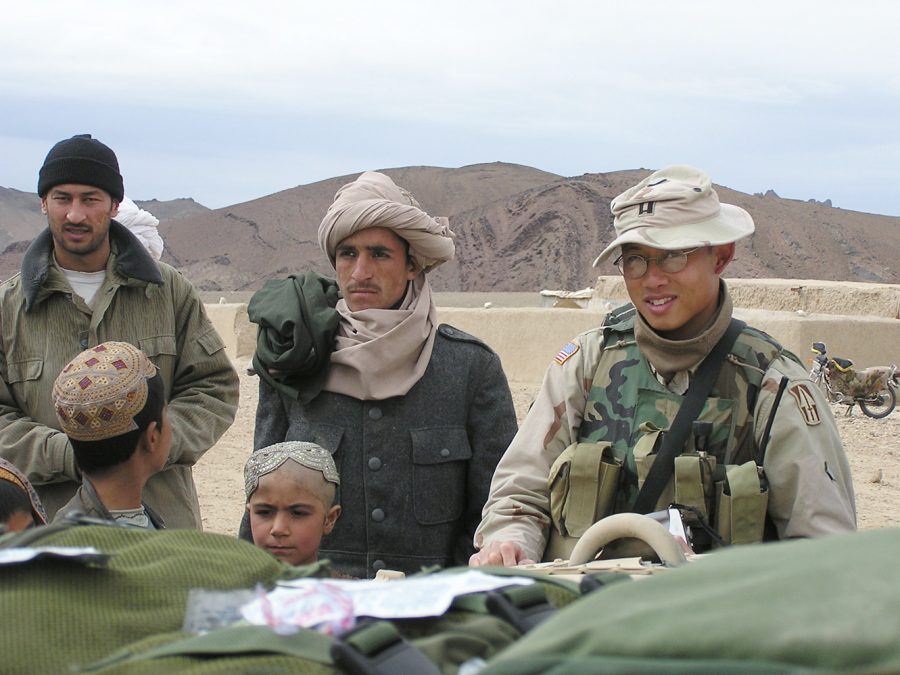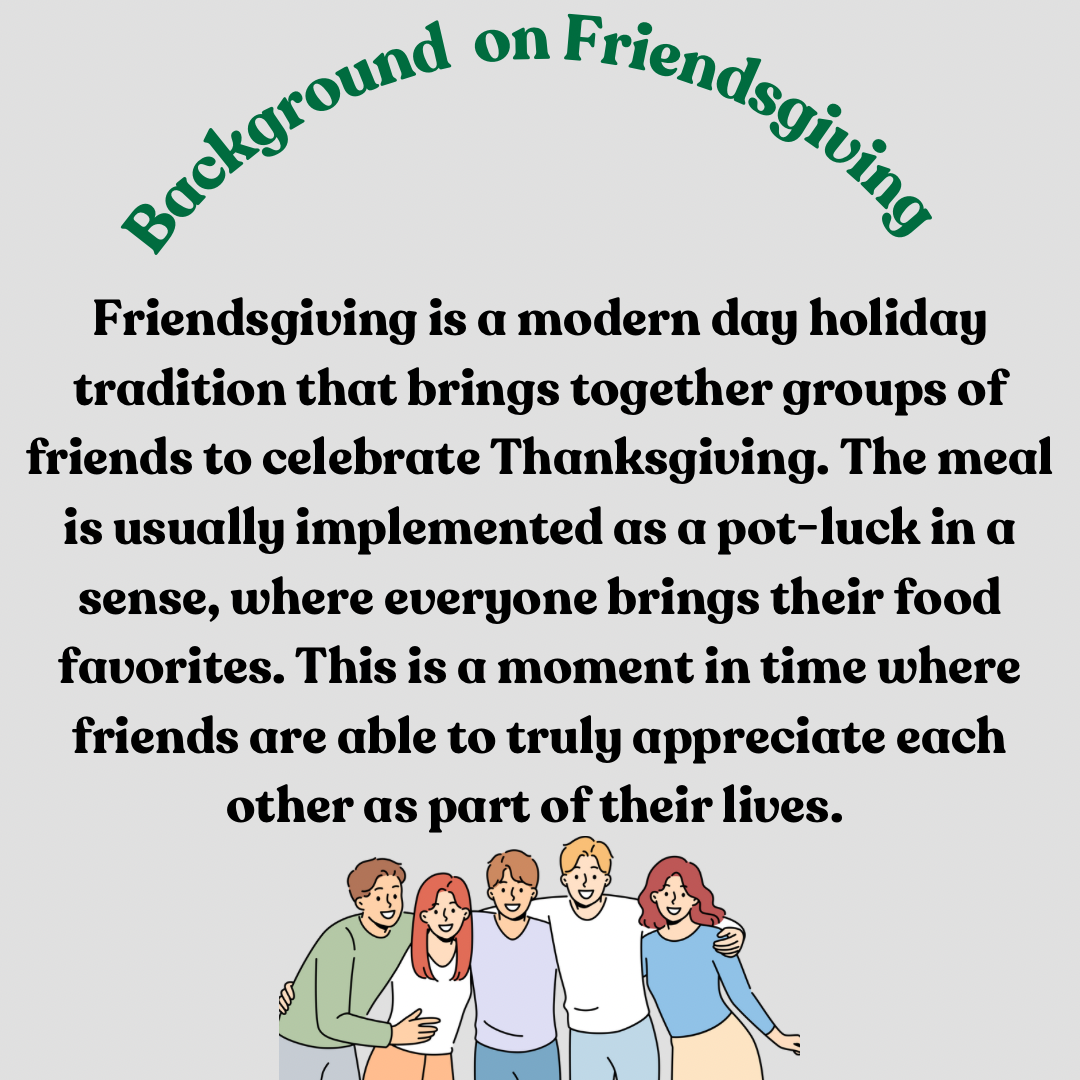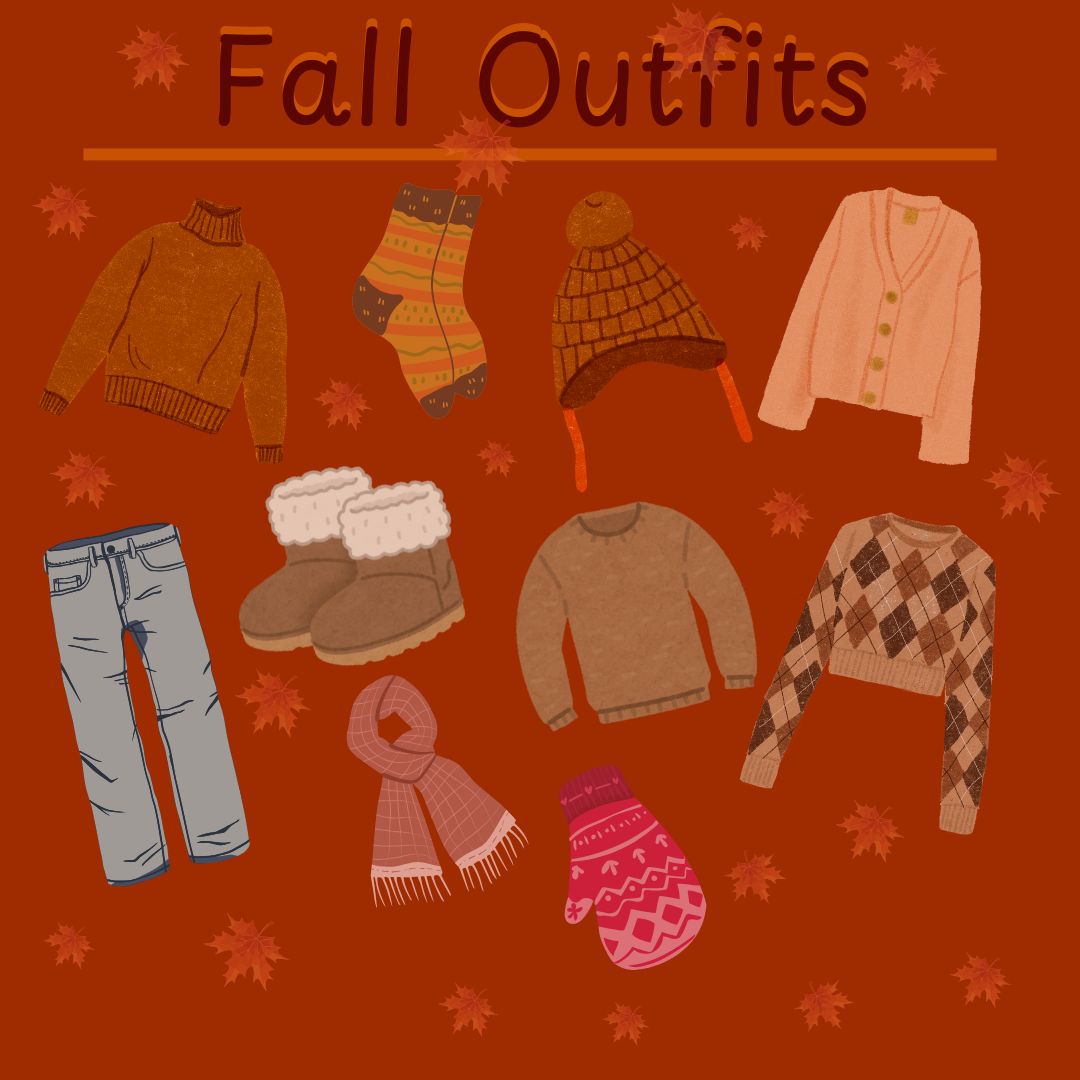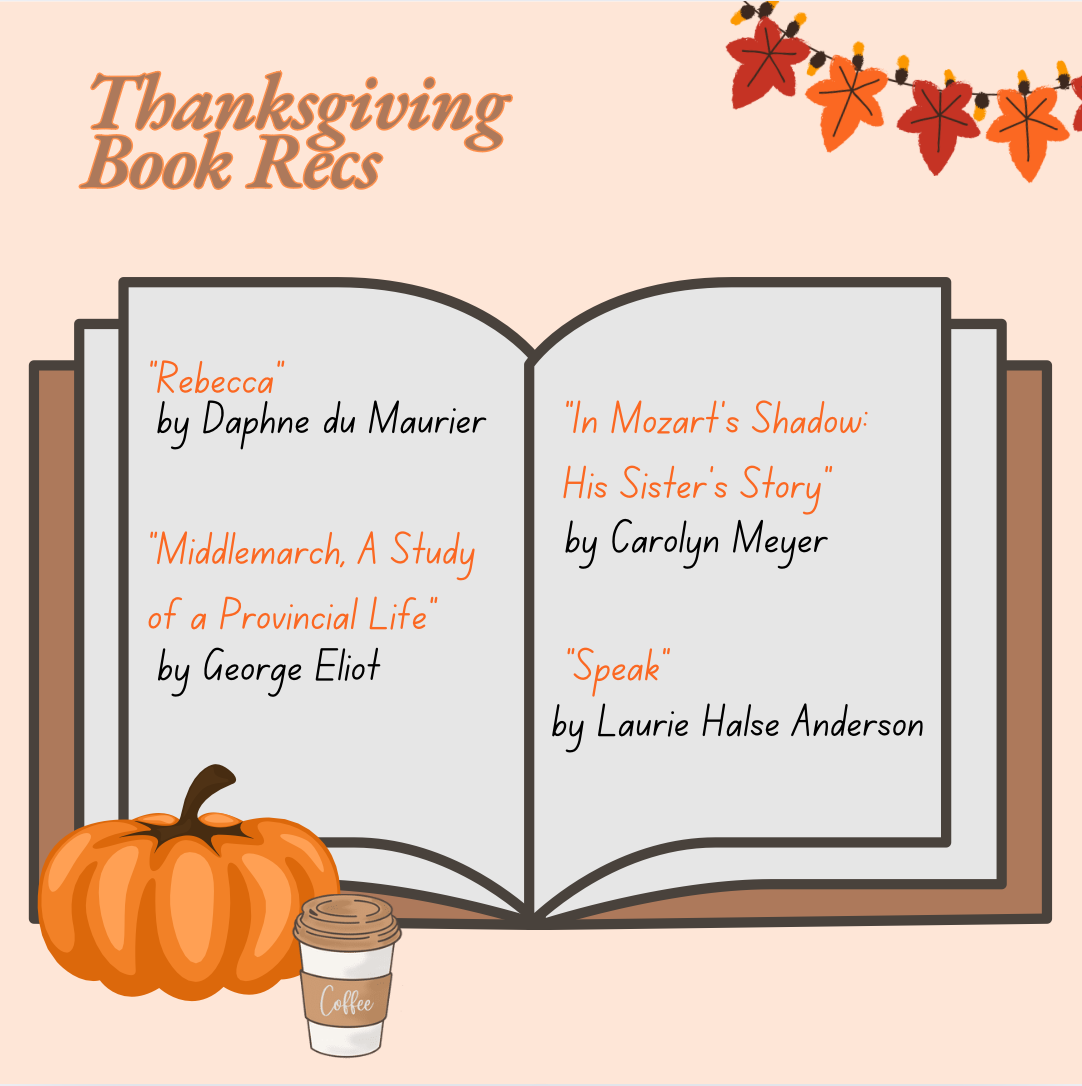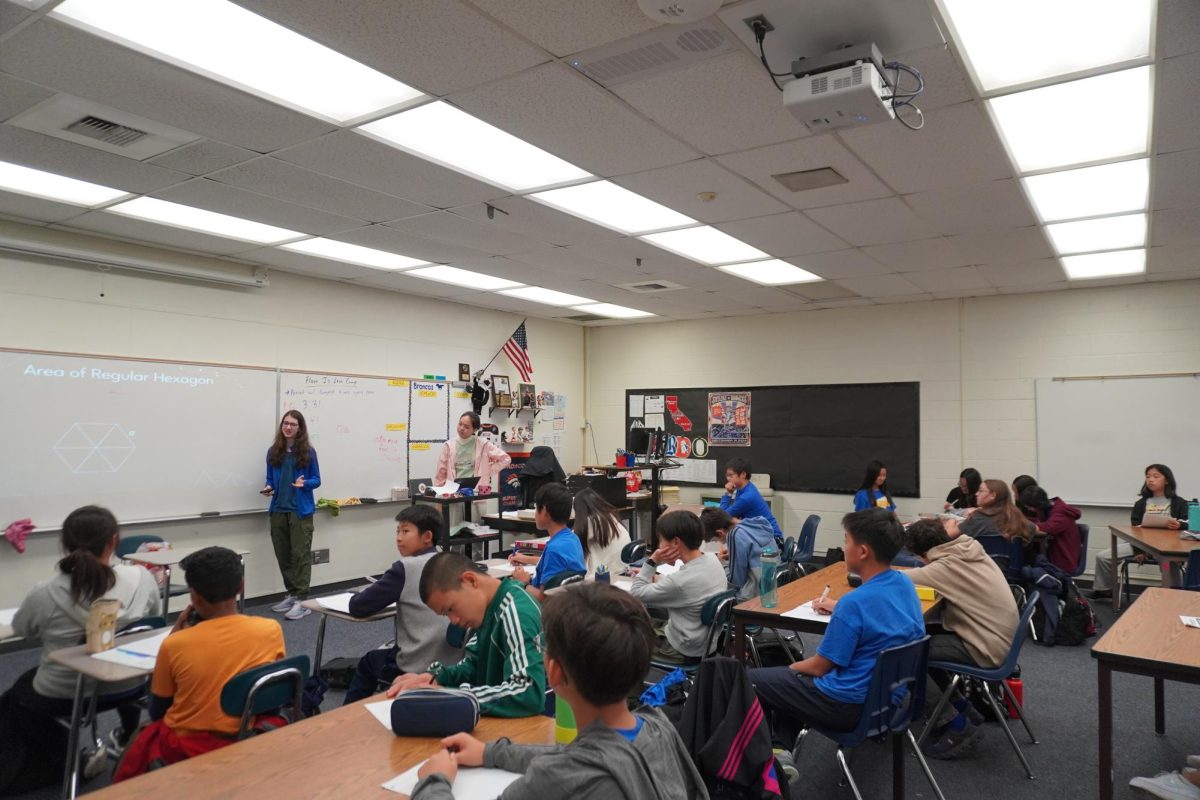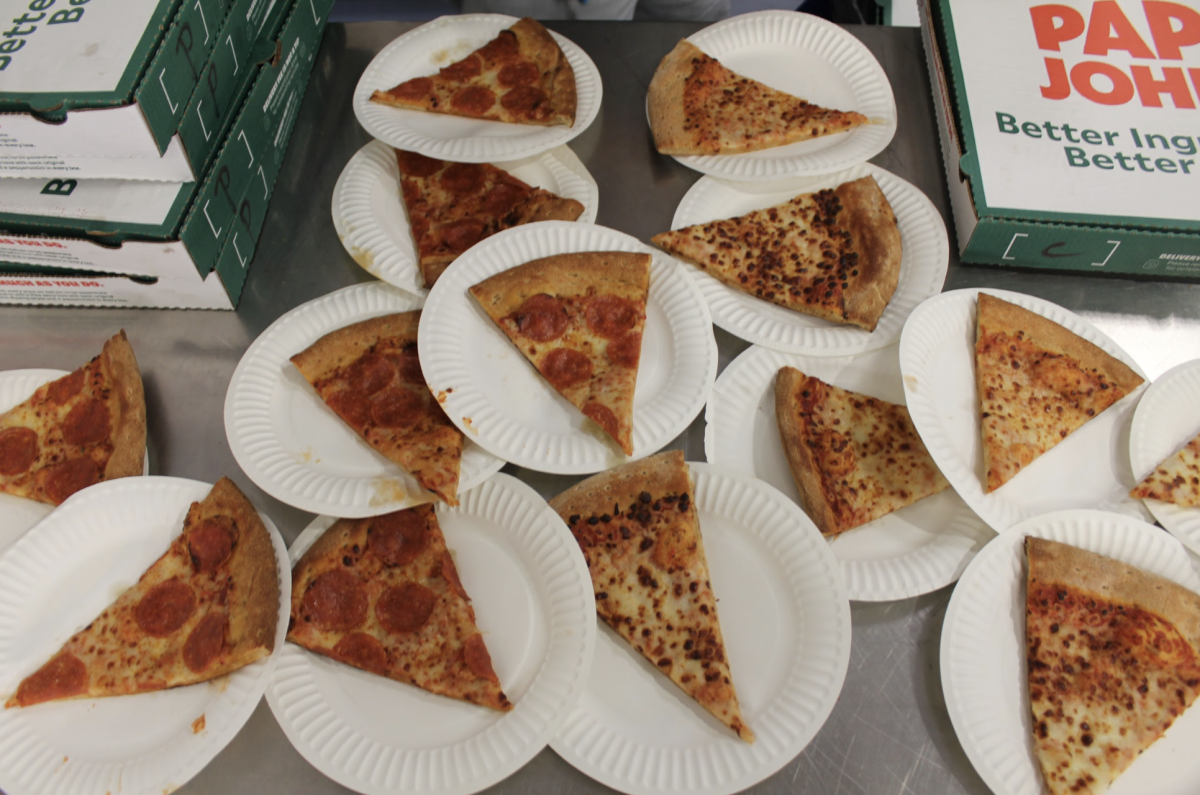Mr. Martin Chinn (English Dept.) believes the best part about his military experience was the connections he made with others.
By MADDIE FRUMAN
Staff Writer
Veterans’ Day is much more than a day off of school — it is a day to recognize the brave men and women who have served to keep the country safe. University High School happens to be home to several veteran faculty members, who agreed to share their experiences. Staff members Assistant Principal Kris Kough (Admin.), Martin Chinn (English Dept.), Tom Shrake (Science Dept.) and Kevin Groh (English Dept.) have dedicated years of their lives serving in the United States Military.
Each staff member had a different story behind enlisting in the army. Mr. Kough, who joined the infantry at 20 years old, described his reasons to join as family tradition. He recounted,“I felt a call to duty to serve my country. Both my grandfathers, all my uncles and my dad served, so there was this sense of tradition in our family. Because they all had served, I got that feeling that maybe that’s what I was supposed to do, too.”
Mr. Shrake, who joined the army as a medic at 22 years old, said, “At the time, I was thinking about maybe maybe going to physical therapy school or medical school, and the military has options that help pay for professional schools in return for certain years of service.”
For Mr. Chinn, joining the army was something he hadn’t thought about until college. Mr. Chinn reflected, “It was during my sophomore year that I got a recruiting brochure in my mailbox. I asked [my roommate, who was on scholarship for ROTC] about it and he said that it wasn’t under contract yet so I could try things out without any kind of obligation. By the next summer I was committed, and I contracted for my Junior and Senior year.”
Upon signing up, they were all subjected to basic training for the army. All the veterans recalled their training as difficult but effective in building teams.
“When you see movies, you get these ideas of what [army training] is about: getting yelled at a lot, running around…It was pretty much exactly that,” said Mr. Chinn. He recalled with a laugh, “My first day of training was actually my 20th birthday, and I didn’t dare let anybody know. The last thing you want to do is draw attention to yourself.”
“I think part of the goal in basic training,” Mr. Kough explained, “is to break you down. Not socially or emotionally, but break down the idea of the individual, and rebuild you as part of a team.” Mr. Chinn agreed, saying, “The minute people start to act like individuals when things get stressful in real life, you run the risk of disaster.”
Mr. Shrake, when recalling his training, said, “I actually really liked the training. I really liked being in the daily routine of exercise in the mornings, the structure of classes, and the discipline.”
After their basic training, several of the staff veterans were sent on various missions, from which they recalled many harrowing moments. All who were deployed unfortunately encountered violence overseas. Mr. Chinn, who was deployed in Afghanistan twice, recounted the gruesome and tragic roadside bomb attacks saying,“I think [the attack] killed about eight civilians that were bystanders. This guy was waiting in a car, and he detonated right as one of our team vehicles went by. I was in a follow-on vehicle, probably about thirty metres behind. The gunner [on top of the attacked army vehicle] had a concussion and burns, but he’s alive today.”
Despite the dangers that they were exposed to, each veteran also had many happy memories of being in the military.
Mr. Groh shared the enjoyable humanitarian side of his service, saying “In Iraq, we got to help the kids a lot. We would go and hand out school supplies to kids in orphanages and hospitals.”
Mr. Kough, who was deployed on a peacekeeping mission in Kosovo, remembered his time with fondness. He recounted one of his favorite memories, saying, “We were in this tiny village, and these two little kids were waving at us from this house up on a hill. The little girl came down, and I gave her a box of crayons. She grabbed them, looked at them, and she turned around and ran back up to the house. When we were getting ready to load up, we looked up to the house, and the little girl was in the window, waving to us. That was her way of saying thank you. I will never forget that.”
Each staff veteran also remembered the camaraderie, friendship, and trust that they built in the military.
“There’s a lot of suffering and boredom and misery, but when you share it with friends, it’s not so bad,” said Mr. Groh. “I guess that’s kind of the whole premise behind the life of the soldier.”
“I really liked the interaction with people from all walks of life from all over the country,” Mr. Shrake reminisced, “I met people that I would probably never interact with, being from Southern California, and made some great friends from [the army].”
Mr. Chinn felt that the best part of being in the army was the connections and trust he had with others in his unit.
“It’s such an important moment of affirmation when you see that people are there for you when things get really bad. You feel they would do anything for you, and it makes you willing to do the same for them. That’s probably the best thing about [the army], it’s that feeling of shared sacrifice, shared risk, and the togetherness it creates from that knowledge.”
Life after deployment, upon returning home, was different for each veteran. Being in the military had changed their perspectives, and being home again required some adaptation.
“It’s an adjustment period because you condition yourself to be hyper-alert at all times,” said Mr. Groh. “Adjusting to being in crowds took me a while. I used to have to wear my headphones in the grocery store to not have anxiety because of too many people and too many things moving around at the same time.”
“Loud noises would make me jump, and people walking behind me would make me nervous,” Mr. Kough added.
“You find yourself getting angry at things you shouldn’t normally get angry about, because your brain is still dealing with a fight or flight response. It takes a while to adjust to the fact that you’re in a safe environment again,” Mr. Groh explained.
“It’s kind of surreal,” said Mr. Chinn, “Everything is now your choice again, which hasn’t been the case for the past year.
“It feels a little bit unfair, I guess,” he continued, “There’s a lot of people who are still [deployed overseas], while you just get to move on. Less than a year later, I made the commitment to go back, and part of it was because I hadn’t reconciled the notion of being home, and having the right to be home.
“Months [after I got back home] there were times when mentally I was completely there. It’s very vivid, like it just happened. Something now and then will bring it all back,” said Mr. Chinn.
In addition to the mental and physical adjustments, some experienced culture shock upon returning home. Mr. Kough, who went on humanitarian missions, said, “It was hard seeing people that have so little, and then coming back to the [United States] and seeing kids not taking advantage of this gift of free education. It was hard to come back in the classroom and not get frustrated with students that just didn’t care about school.”
Veterans’ Day is made even more meaningful when we learn of the personal experiences of veterans, like those in our staff. The day holds a lot of significance for many veterans.
“It’s great that at least one day in the year we thank our veterans,” said Mr. Kough. “Whenever I see a veteran I always thank them for their service. Whenever I meet a young man or young woman who’s about to go in, I always tell them [that they’re] joining a very special group of people, a group that has felt the call to serve their country. Thank goodness we live in a country where you can have a choice, because there are a lot of countries that still force their young men and women to go in.”
“It’s good to provide recognition to the people who are willing to step up and sacrifice themselves to provide that security blanket for the country,” Mr. Groh said.
“I have zero regrets,” said Mr. Chinn, “It was easily the most important influence on my life. There’s no doubt that it shaped who I became. It shapes you in a way that few experiences will. I think that it’s helped me in so many different ways in life that I’m so glad that I did it. If I could go backwards, I wouldn’t really change anything.”



